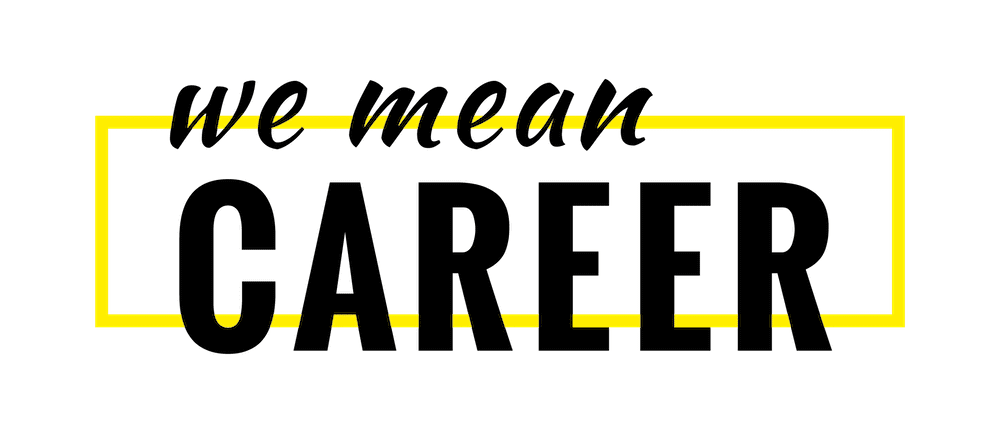WHAT IS BUSINESS COMMUNICATION AND HOW TO IMPROVE IT

Photo by BONNINSTUDIO
Introduction
Effective communication skills are paramount in business. Exceptional communication promotes a healthy, happy workplace and leads to better performance for both the employees and the company itself. Productivity is increased, and creativity can be fully expressed when interpersonal business communication is flowing successfully.
Without proper communication, however, businesses are bound to have trouble. When communication fails, conflict can occur within a business that could otherwise have been avoided. Lack of proper communication can also lead to less productivity in the office, meaning that your business will struggle to reach its full potential. The better you communicate, the better you will do within the company for which you work.
This short guide will cover the basic communication skills needed for the workplace as well as many communication techniques and tips that you will be able to immediately apply in your business.
What is Communication?
Communication is the delivery or exchange of information between two or more people. It is a means of connection with another person or many other people and its purpose is to increase understanding and to impart meaning.
Some may think that communication is synonymous with speech, but that is not the case. Verbal communication is only one of many ways we communicate. In addition, it is not always the case that our verbal expression is received by the listener. When we speak but are not understood, it is a sign that we have failed to communicate.
Only when a message is delivered, received and understood can it be truthfully stated that communication has occurred.
Communication is not a monologue, but a dialogue. It requires both a transmitter and a receiver to function properly. The transmission of information can be verbal, non-verbal, written, visual or a combination of the four. Miscommunication can happen in many places along the line of communication, making communication one of the hardest aspects of a business to master.
What are Some Barriers to Successful Communication?
Many factors can contribute to miscommunication. Communication barriers include:
- Judgment
- Unsolicited Advice
- Lack of Empathy
- Expectations/Prejudice
- Complicated Jargon
- Heightened Emotion
- Stress
- Lack of Interest
- Cultural Differences
One or all of these could be at play during a moment of communication between you and a colleague. When engaging in communication, keep your language simple, clear and to the point so as to avoid confusion or misunderstanding. Enter the conversation with an open-minded, calm attitude. Even if the person you are communicating with is in a heightened state of emotion or is projecting unrealistic expectations upon you, you will stand a far greater chance of reaching them if you remain in a state of neutrality and respect.
The Importance of Communication Skills in Business
When communication is flowing, inspiration, motivation, and action abound. When people feel heard and understood, they perform better. They feel accepted, needed and important. They want to contribute more and more, and they will work harder for you because they feel like their voice matters.
Much the same, when you are able to communicate with your team effectively, you provide the inspiration for your team and you will flourish within your business. In a company with effective communication, ideas form more easily, the workplace atmosphere is bright and positive, and you will cultivate a loyal, passionate team that sticks with you.
Conflict is resolved expediently and harmoniously within a network that has cultivated a communicative environment. In fact, communication allows for conflict to be a good thing, as its resolution often leads to a greater understanding on all sides and can very often be a catalyst for growth and expansion.

Developing Successful Business Communication Skills
In order to elevate your communication skills, you must first understand the various lines of communication within your business. There are multiple types of business communication. These avenues of communication are:
- Upward (Information shared up the chain of command)
- Downward (Information flowing down the chain of command)
- Lateral (Information shared between those on the same level within the company)
Mastering all three avenues within your workplace will help you to gain recognition and will aid in your growth within the company. Before you engage in communication ask yourself if you are choosing the proper avenue.
Also, ask if you are choosing the most effective channel for your communication. There are myriad channels to choose from. Some of these channels include:
Verbal:
- Face-to-face
- Telephone
- Video
Non-Verbal:
- Body language
- Facial Expression
- Energy or “vibe”
- Scent
- Clothing
Written:
- Text
- Memo
- Posted Sign
- Handwritten note or letter
Visual:
- PowerPoint presentations
- Pictures
- Graphs
- Videos
These are just some of the ways in which you can communicate your message and often multiple channels are at play. It is important that you choose your method of communication wisely by taking into consideration the intended message, the receiver(s) involved and the potential barriers to effective communication. Is what you need to say best served by an in-person conversation, or would an email suffice?
Remember, even the choice to visit someone in their office versus calling them on the phone is communicating something. Consciously decide what you intend your receiver to walk away understanding and carefully choose your method of delivery and environment in order to support that intention.
How to Communicate Effectively
There are some basic communication skills that will help you on your way to improving your interpersonal business communication. Choosing to work with these communication tools will help you to naturally enhance your business relationships over time.
Remember, ultimately it is not about what you say or write, but about what is heard, received and understood. You could give the most eloquent speech in the world, but the words hardly matter if the meaning is missed. Moreover, real communication is between people, meaning that proper transmission is not enough. You must also master the art of receiving.
These four basic skills will set you up for successful communication in your business.
Listening (or, Receiving)
The power of listening is often overlooked when it comes to communication, yet it is more than half the battle. The person speaking or delivering information to you in some way is attempting to transmit meaning. Sometimes their line of communication isn’t clear, and that’s where listening comes in real handy.
Listen for meaning and don’t get caught up in semantics. Words and language are powerful and often come already encoded with meaning, but if you are a good listener, you are able to hear the message through the words. You can help yourself by placing all your focus on the transmission and none of your focus on your response.
When you aren’t worried about what you have to say, you are able to fully receive what the other person is conveying to you. Then, when they are finished you can place your full attention on assimilating the information received and delivering a response back to them.
Clear, Concise Transmission
When it is your time to speak, do so clearly and without fluff. If you need to take a moment and a breath or two before responding, do it! There’s no need to respond right away. It’s better to take a moment, gather your thoughts, know what your point is and then express it concisely. Speak slowly, articulately and choose your words carefully to support your point.
Stick to one point at a time and follow it all the way through. Going off on tangents will only confuse your listener and stop the flow of communication.
Non-Verbal Cues
Pick up on body language, facial expressions and the overall energy of the person or people with whom you are communicating and adjust your tactics accordingly. Remember, you want to promote understanding and lower the risk of being misunderstood. This means that you are going to have to up your non-verbal communication game.
You are constantly giving non-verbal cues as well. Be mindful of your tone of voice, body positioning and any fixed facial expression that may come off as hostile, hard or closed-off. If you notice that the person you are conversing with is displaying harsh body language, take that as a sign that you need to consciously soften them with your tone, choice of words and smile.
It can feel strange and somewhat manipulative to alter your behavior on purpose to affect change in the other person, but in fact, humans are constantly doing this with each other – it’s just that some aren’t conscious of it. When you harness the ability to adjust your non-verbal cues and pick up on the non-verbal cues of others, you are able to use that ability to affect positive change with your communication.
Respect
You may not always agree with who you are speaking with, but in all cases always show respect. You can do this by listening actively, by refraining from condescension or superiority in your speech and by seeking greater understanding for the benefit of the company.
At the end of the day, your communication is in service of something greater than yourself: the success of the business for which you work. Treat others always with respect and watch that respect return to you.

Communication and Conflict
Conflict is going to happen even in the most peaceful of work environments. Misunderstanding, emotional triggers and cultural differences all lead to problems between people in the workplace. When it comes to conflict resolution, it is important to let go of the need to be “right” in favor of coming into a greater understanding of the situation and the other person or people involved.
In an ideal world, both sides would be able to engage in conversation from a place of neutrality and grace. Sometimes that is not possible, and conflict can escalate. However, if you are able to cultivate the following conflict-management communication skills, you may find that you are able to bring the situation to a healthy resolution anyway.
- Patience
There are going to be times when you are faced with a communication challenge that seems hopeless. Perhaps you and the person you are conversing with have entirely separate values and beliefs. Maybe one or both parties feel wronged by the other and those feelings are getting in the way of moving forward with the conversation. Perhaps culture is playing a role in your ability to communicate effectively.
Whatever the issue, patience will be your best friend. Sometimes conflict cannot be resolved in one conversation. Sometimes it takes multiple encounters in order for positive change and resolution to occur.
Both parties must be willing to resolve the conflict in order for a resolution to occur, and sometimes even arriving at that place takes time. The important thing for you to remember is that you want to resolve the conflict because you know it is what is best for yourself and your business.
Give grace and allow time to pass if it seems that communication has come to a standstill. Eventually, the time will come to resolve the conflict. Be patient.
- Stress Management
In conflict, often states of heightened emotion can occur, especially if one or both parties feel personally wronged by the other. It is perfectly normal to experience a wide range of emotions during periods of conflict in business, yet it is important to keep a level head when attempting to communicate for the purpose of conflict resolution.
First, don’t attempt to engage in communication while still in a state of anger. Allow the emotional waters to still before approaching a conversation. Then, once engaged in conversation, if you feel your emotions stirring once again remember to breathe.
Breath will save you every time. Allow yourself a couple of deep breaths before speaking so as to calm yourself, and never ever cut the other person off while they are talking. Patience, respect and all the other communication tools still apply even in high-stress conversations. Your message cannot be received, nor can another’s message be heard by you when you are triggered into a stressful and emotional state.
- Empathy
Emotions do play an important part in communication, however. When they are not threatening to overwhelm you, they become a river on which communication between people can flow.
Empathy is the ability to sense another’s emotions and feel them as though they are your own. You do not have to take on or absorb their emotions but opening yourself up to feel how the other person is feeling will give you a much more honest impression of the truth of their position.
In conflict, when emotions are involved, it often means that people are in some sort of pain. Proper communication heals that pain by increasing understanding between people. Use your logical, rational mind along with your intuitive, sensing self when engaging in communication for the purpose of conflict resolution.

Top 10 Tips and a Book for Improving Communication Skills
Utilize these communication tools and watch as your interpersonal business relationships rise to the next level.
- Presence
Be all there when you communicate. You can’t listen when your mind is somewhere else, and you can’t effectively speak when you are unfocused or distracted.
- Use of Language
Don’t get too caught up in fancy words. You may think they’re more effective, but quite often common words used clearly and concisely result in greater receptivity.
- Observe
Listen with all your senses when someone is communicating. Take the other person in through every available channel and don’t forget to include your surroundings in your observation. Everything that is happening in each moment is contributing to communication.
Even something like the temperature in the room could be having a negative effect on your communication. Pay attention and adjust accordingly to your environment and your audience.
- Embrace Silence
There’s no shame in stillness and silence. After someone has spoken don’t be afraid to take a couple breaths and allow their words to sink in. Often the mind wants to immediately jump in with something to say, but a few extra moments of silence can often produce more effective communication.
- Ask Questions
Don’t assume you know. Understanding is key, so when someone transmits something to you, follow up with clarifying questions so as to deepen your understanding of their message. You’ll not only learn more, but you will make the other person feel heard, which will likely cause them to open up to you further.
- Display Confidence
If it is apparent that you are unsure of yourself, you greatly decrease your ability to be heard by others because they will not trust you. Believe in yourself and your message. To show confidence, speak clearly and articulately, stand or sit up with an aligned spine and give good eye contact.
- Be Flexible
Flexible people are the happiest people. Rather than having a fixed perspective, open yourself up to new ideas and information. Remember, you are in service of bettering your business.
It is not important to be right. It is important to win, and you win by working with others, not against them. Don’t lie down and get walked all over so as to avoid conflict, but don’t hammer home your point so hard and so often that the conversation can’t move forward.
- Give and Ask for Feedback
Misunderstanding happens when people assume they have either effectively conveyed or received a message without confirmation. You can’t know if you’ve communicated something effectively until you have received feedback from your receivers that aligns with your message. Their response will let you know whether your attempt at communication was successful.
Much the same, let others know whether or not their point reached you by offering feedback starting with, “So what I’m hearing you say is…” By reflecting back to them what you received, you let them know whether or not you understand. If both sides understand each other, great! If not, that is simply an indication that further communication is needed.
- Smile
Nothing beats an authentic smile. It indicates to your receiver that you are listening, interested, open and empathetic, which more than likely will promote greater openness in them.
This is not to say that you need to have a permanent grin on your face. Simply allow for your openness, empathy, and trust in the situation to read on your face with a gentle smile and a warm gaze.
- Be Honest
At the end of the day, truth begets truth. It does no one any good to hide their honest opinions, beliefs, and perspective in favor of people-pleasing or conflict avoidance. When you speak openly and honestly from your perspective, you immediately give others permission to do the same and dialogue then becomes far more productive.
Temper your truth with compassion, empathy and the rest of the tools on this list. Then, not only will your voice be heard, your message will be far more likely to resonate with your listeners and cause positive change.
11. Read the book “4 Essential Keys to Effective Communication in Love, Life, Work – Anywhere!” by Bento C. Leal III
Conclusion
Developing good communication skills is a fluid, continuous process. Whether you realize it or not, you are constantly in communication with the world around you. In business, it is important that you bring as much of your unconscious communication into consciousness so that you are able to make purposeful, active communication choices across all channels.
With every aspect of your communication that you harness and enhance you give your colleagues and clients the opportunity to get a clearer picture of your message and meaning. When you are clear in your communication, you increase the odds that the communication you receive will also be clear, concise and effective. Improve your communication and watch yourself soar within your company.




